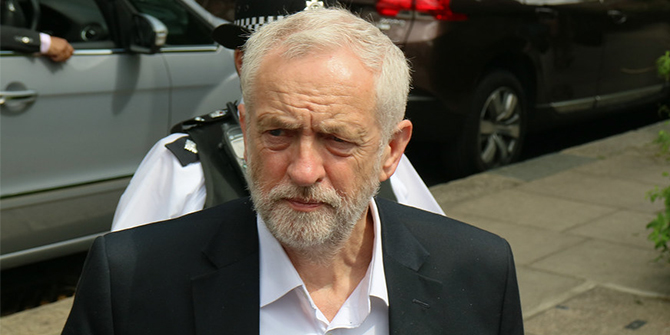
 Colin Murray and Jonathan Evershed elaborate on some of the challenges the Northern Ireland Protocol poses for Wales and discuss what these say about devolution more generally.
Colin Murray and Jonathan Evershed elaborate on some of the challenges the Northern Ireland Protocol poses for Wales and discuss what these say about devolution more generally.
As Belfast Harbour announced substantial trading profits, a row erupted over the source of this turnaround in fortunes, and the extent to which it could be attributed to the Northern Ireland Protocol. With debate over the Protocol so fraught, this is hardly unexpected, but it is worth putting this discussion of the Protocol in the context of the broader consequences of Brexit, particularly for Wales.
The changes in trade patterns
For Belfast Harbour, all of this new business wasn’t a straightforward story of the benefits of the Protocol working as intended: ‘the level of trading has benefitted from the respective grace periods associated with the implementation of the NI Protocol, and has benefited from some traffic diversion from Dublin port services’. In other words, the level of trading through Belfast Harbour is as much a product of the ways in which the Protocol is not currently functioning as evidence of its successful implementation. It also reflects Brexit’s disruption to wider trade patterns across ‘these islands’ and beyond.
It is thus simplistic to conclude that the Belfast Harbour trading figures of themselves illustrate the substantive benefits of the Protocol for Northern Ireland more generally. And in many respects, it would be remarkable for it to have deep economy-wide benefits at this point: there is so much uncertainty over how the Protocol is to continue to operate that many businesses remain unwilling to get drawn into making sense of the arrangements for applying its terms and inward investment is stymied. Maintaining such uncertainty makes ‘the Protocol isn’t working’ into a self-fulfilling prophesy.
But if it has not yet been permitted to function as intended, the Belfast Harbour results do indicate how the partially-implemented Protocol is changing trade patterns post Brexit. The Trade and Cooperation Agreement (TCA), concluded in December 2020, was celebrated as being on a ‘no-tariffs-no-quotas’ basis. But that still makes for a thin free-trade agreement, with the UK government choosing not to align with EU product standards. As a result, the barriers to trade between Great Britain and the EU expanded considerably. The Northern Ireland arrangements, especially with parts of the Protocol’s operation suspended, particularly with regard to some foodstuffs, continues to involve far fewer barriers to trade.
This is, however, no basis for the UK government implementing the ‘trade divergence’ provisions of Article 16 of the Protocol. Much of the divergence that is happening is occurring precisely because of the UK’s unilateral extension of the Protocol’s grace periods. And beyond that, the relative lack of restrictions upon trade across the North Channel under the Protocol was always going to make it an attractive route by comparison to trading under the terms of the TCA. This shift in trade patterns is entirely attributable to the terms of Brexit. These terms actively advantage trade routes between Cairnryan and Belfast over other Irish Sea corridors. While this has been to Belfast Harbour’s benefit, it has proven extremely damaging to Wales’ Ireland-facing ports – Holyhead, Fishguard, and Pembroke Dock – in ways that may yet have profound political and even constitutional implications.
The cost to Wales
Prior to Brexit, the Port of Holyhead, in particular, was an important node in the so-called UK landbridge which connected Irish traders to European export markets. In 2018, approximately 150,000 lorries (accounting for around 40% of Ireland’s total external trade) made use of the landbridge. The Irish Sea’s central corridor, between Dublin and Holyhead and Dublin and Liverpool, accounted for the bulk of this movement. Critically, open borders, and the absence of barriers to trade within the European Single Market meant that for Northern Ireland based traders, this was also the best and most efficient route to get goods to and from Great Britain and Europe. Before Brexit, about 50% of Northern Ireland’s trade with Great Britain was done via Dublin and Holyhead.
The way that Brexit has unfolded since 2019 has essentially put paid to the central corridor’s competitive advantage. As of January 2021, goods coming from Holyhead into Dublin have been subject to the full weight of new barriers to trade between the UK and the EU – including burdensome new customs processes and sanitary and phytosanitary (SPS) checks. However, during what were euphemistically christened the ‘sausage wars’ goods moving between Cairnryan and Belfast became subject to a number of (indefinitely extended) grace periods. Simply put, it is now more attractive for those trading into Northern Ireland to send their goods up to Western Scotland and over the North Channel than it is to send them to Dublin and then up through the Port Tunnel and on to the M1.
At the other end of the UK landbridge, the now ubiquitous footage of long queues of lorries at Dover is testament to the new barriers to trade that exist across the English Channel. Irish traders are increasingly loath to risk seeing their goods end up stuck in this logistical snarl up. Instead, they have been turning to the booming number of direct-to-Europe sailings from Irish ports. Many of these routes leave from and return to the South Eastern port of Rosslare, where the historic connection to Fishguard and Pembroke Dock has become far less important that its connections with Spain, France, and Belgium. Ports in Ireland are thus offsetting these shifts with the expansion of direct routes to the continent, but Wales has no way to mitigate these shifts.
As former Welsh Government adviser, Gareth Williams, recently lamented, Welsh ports have essentially found themselves caught in the middle of these dual processes of trade diversion. Crucially, that this had the potential to be the case was identified by the Welsh Assembly (as was) and the Welsh Government very early in the Brexit process. The potential problems with the requirements of ‘pre-boarding notification’ for transit through ports such as Fishguard and Holyhead were highlighted prior to the conclusion of the TCA. The thin nature of the TCA as ultimately agreed, especially given the short lead in time to it coming into effect, did little to alleviate the post-Brexit paperwork requirements.
These problems went (and remain) almost entirely unacknowledged and unheeded by the UK government. Particularly as compared to their Irish counterparts, Welsh ports were staggeringly underprepared for Brexit. The will to address the issues that Brexit has raised here has often fallen through the cracks of Wales’ devolution settlement, with authority and obligation for different of the changes that need to be made to port infrastructure and operations split between Cardiff and Westminster. The warnings about the future of Wales’ ports range from the bleak to the truly dire.
Fixing the Protocol
Continuations of grace periods for Northern Ireland, therefore, are not cost free. They come at the expense of considerable and potentially irreparable damage to the Welsh ports. This is, quite simply, not factored into ongoing debate about whether and to what extent the Protocol can or should be renegotiated. The indefinite extension of ‘grace periods’, which is widely anticipated to form part of any potential ‘landing zone’ for current negotiations around the Protocol, would enshrine and deepen the disadvantage currently being experienced by Welsh ports.
This is not to say that there are not Protocol reforms which could mitigate some of these issues. As Tony Connelly has reported, ‘EU diplomats still believe … that when it comes down to it, there is ultimately not that much between the UK’s demand for a green lane for goods demonstrably staying in Northern Ireland, and the EU’s offer of an express lane with caveats’. Such an approach, if grace periods therefore ended, might make Belfast somewhat less attractive than present as a route for hauliers from Great Britain. The problem is that, in the short term, the Northern Ireland Protocol Bill makes such a fix harder to achieve. Not only has it raised negotiating tensions, all actors have already factored in that the Bill will face delays in the Lords. It has therefore pushed the negotiating window deep into 2023, all but freezing the dispute until then.
All the while, the new trading patterns across the North Channel become normalised. Even if a green/express lane adjustment is eventually introduced, the Protocol will still have advantages for hauliers. At the very least, under its terms, Great Britain accepts goods coming through Northern Ireland without checks. Thus, as soon as the UK government is in a position to implement full border checks on goods (an ambition which remains to be realised), the North Channel will receive a further boost in terms of its attractiveness to trade over routes through the Welsh ports. Only an extension of the TCA, limiting some of the post-Brexit trade barriers, can really reduce this disparity.
The Union after Brexit
It does not really matter that devolution is functioning properly in Wales, whereas it has been dysfunctional in Northern Ireland since Brexit; the collapse of trade through Welsh ports showcases the constitutional limitations upon devolved institutions. A hard Brexit is making it unattractive to trade through Welsh ports, and there is little that the Welsh Government can do to shape national policy. The disregard for Welsh ports during and since Brexit is part and parcel of Wales’ wider marginalisation and peripheralization within the political economy of the United Kingdom, which inchoate processes of ‘levelling up’ do not appear apt to address.
It is also indicative of and driving the growing distance between parts of Wales and SW1 which has found expression in recent electoral cycles. Claims about a ‘Green Wall’ in West Wales reveal how Plaid Cymru has consolidated its dominance here after Brexit. Under the terms of Plaid’s partnership agreement with the Welsh Labour Government, Wales is currently involved in an extensive process of debate and discussion around its constitutional future, in a way that is almost certainly more urgent as a consequence of Brexit (and, arguably, wouldn’t be happening at all, were it not for Brexit).
The fate of the Welsh ports amid the Protocol saga is thus a profound warning about the state of devolution after Brexit. The Welsh government identified a serious issue with the way Brexit policy was operating, but because this account conflicted with two UK government priorities, presenting the benefits of Brexit and searching for some approach to Northern Ireland that it would find acceptable, its warnings have been ignored.
This illustrates key weaknesses in the UK’s constitutional approach to devolution; the inability of the devolved institutions to affect UK government planning on centralised issues, even where the decisions can have serious repercussions ‘on the ground’. It also highlights the extent to which issues affecting Wales, Scotland and Northern Ireland have to force themselves onto the UK government agenda. When they do, as with policy around the Northern Ireland Protocol, crisis management of one aspect of the Union is not always considered in light of its repercussions for the Union as a whole.
___________________
 Colin Murray is Reader in Public Law at Newcastle University.
Colin Murray is Reader in Public Law at Newcastle University.
 Jonathan Evershed is Newman Fellow in Constitutional Futures at University College Dublin.
Jonathan Evershed is Newman Fellow in Constitutional Futures at University College Dublin.






